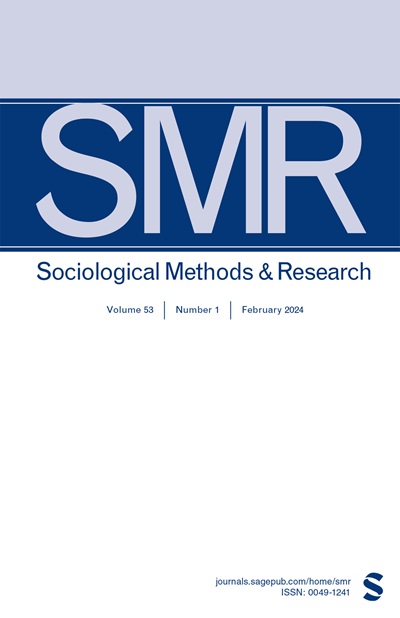应对丰富:选择正确算法的计算方法
IF 6.5
2区 社会学
Q1 SOCIAL SCIENCES, MATHEMATICAL METHODS
引用次数: 4
摘要
社会学家越来越多地面临着在相互竞争的算法中进行选择的问题,这些算法代表着对同一任务的合理方法,而在这些算法中的选择几乎没有指导。我们开发了一种策略,使用模拟数据来确定不同方法表现良好的条件,并应用从模拟中学到的知识来预测哪种方法在从未见过的经验数据集上表现最好。我们将这一策略应用于一类方法,根据受访者是否共享对给定领域的解释,对态度调查的受访者进行分组。这使我们能够确定我们考虑的方法的相对优势和劣势,包括关系类分析、相关类分析和其他八种此类变体。研究结果支持了“没有免费午餐”的观点,即研究人员应该放弃对一种最佳算法的追求,转而将算法与每种最合适的数据进行匹配,并为如何做到这一点提供指导。本文章由计算机程序翻译,如有差异,请以英文原文为准。
Coping With Plenitude: A Computational Approach to Selecting the Right Algorithm
Sociologists increasingly face choices among competing algorithms that represent reasonable approaches to the same task, with little guidance in choosing among them. We develop a strategy that uses simulated data to identify the conditions under which different methods perform well and applies what is learned from the simulations to predict which method will perform best on never-before-seen empirical data sets. We apply this strategy to a class of methods that group respondents to attitude surveys according to whether they share construals of a given domain. This allows us to identify the relative strengths and weaknesses of the methods we consider, including relational class analysis, correlational class analysis, and eight other such variants. Results support the “no free lunch” view that researchers should abandon the quest for one best algorithm in favor of matching algorithms to kinds of data for which each is most appropriate and provide direction on how to do so.
求助全文
通过发布文献求助,成功后即可免费获取论文全文。
去求助
来源期刊

Sociological Methods & Research
Multiple-
CiteScore
16.30
自引率
3.20%
发文量
40
期刊介绍:
Sociological Methods & Research is a quarterly journal devoted to sociology as a cumulative empirical science. The objectives of SMR are multiple, but emphasis is placed on articles that advance the understanding of the field through systematic presentations that clarify methodological problems and assist in ordering the known facts in an area. Review articles will be published, particularly those that emphasize a critical analysis of the status of the arts, but original presentations that are broadly based and provide new research will also be published. Intrinsically, SMR is viewed as substantive journal but one that is highly focused on the assessment of the scientific status of sociology. The scope is broad and flexible, and authors are invited to correspond with the editors about the appropriateness of their articles.
 求助内容:
求助内容: 应助结果提醒方式:
应助结果提醒方式:


